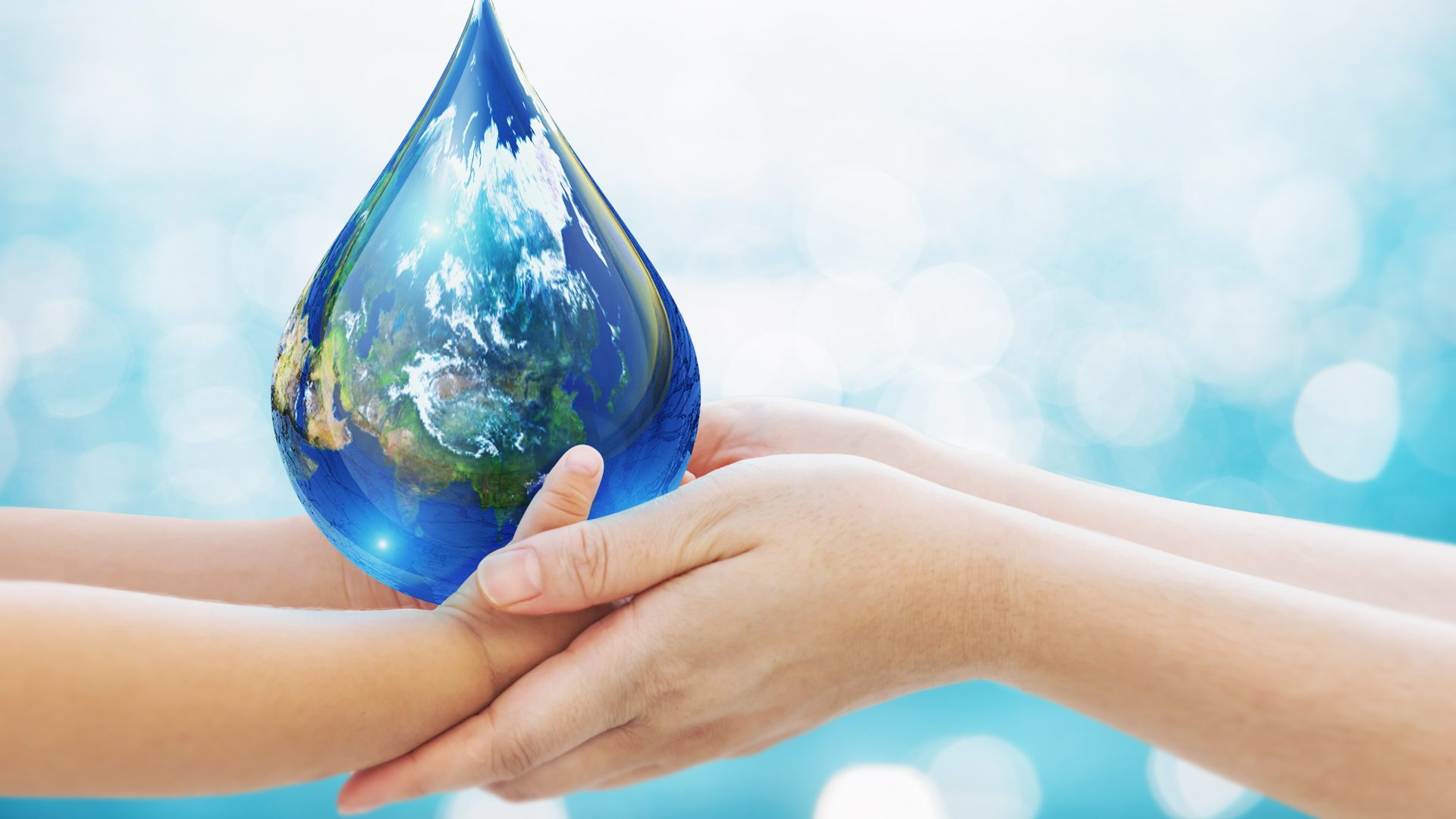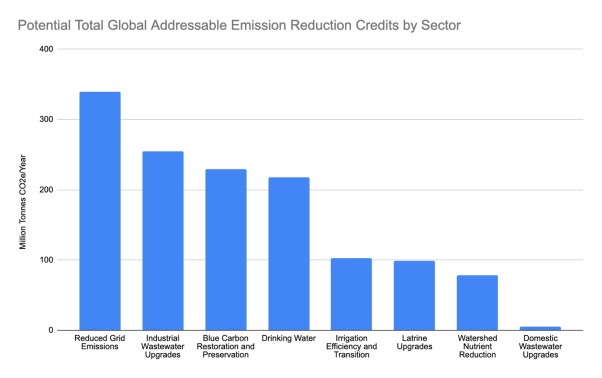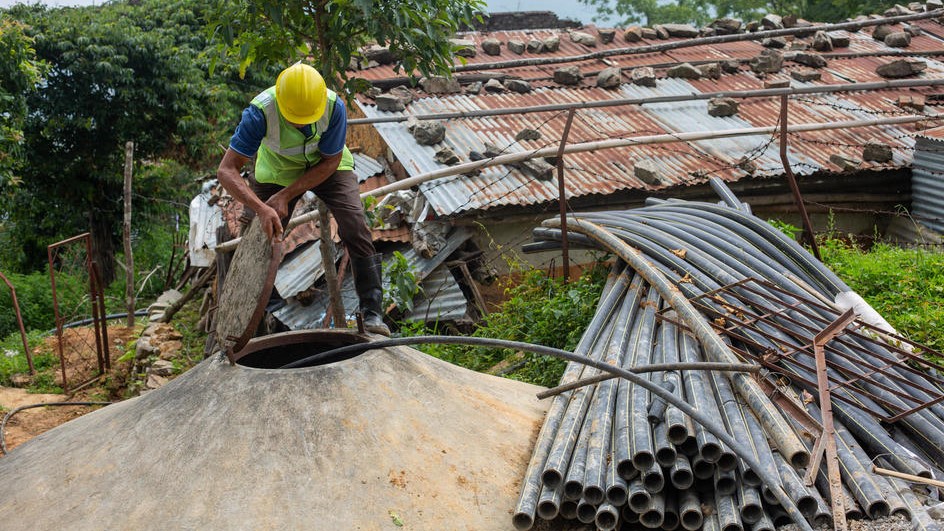4% of the world’s carbon emissions could be saved within the global water sector, initial findings from research commissioned by WaterAid’s Resilient Water Accelerator (RWA) and Voluntary Carbon Market Integrity Initiative (VCMI) recently revealed.
Launched in December last year, findings indicate over 1.3 billion CO2e of mitigation potential per year in the global water sector, equivalent to nearly half of the EU’s annual emissions.
WaterAid’s RWA states that to achieve this, collaboration is essential between countries, the water sector and the broader climate finance community. Harnessing market mechanisms such as high-integrity voluntary carbon markets (VCMs) can deliver a triple win: emissions reduction, improved water security, and improved access to safe water and sanitation for millions of people.
In practice this would mean generating carbon credits from projects which deliver carbon savings as well as water benefits, such as, improved drinking water access in developing countries, reduced methane emissions from latrines and centralised wastewater treatment plants or restored coastal environments.
In its initial stages, the research has looked at where emissions come from within the water sector and found that delivering improvements in coastal blue carbon, wastewater treatment, drinking water treatment, irrigation as well as energy efficiency broadly, water security could be improved while generating carbon credit emission reductions. These credit estimates are show in the figure below.
Speaking at COP 28, Kate Hughes CBE, Resilient Water Accelerator CEO, called for investment in water to be top of the agenda at COP, saying:
“The impacts of climate change are felt through water, whether that be too little or too much.
“This research identifies a significant opportunity to cut carbon emissions while also boosting vital water services for millions of people in low and middle income countries dealing with the devastating impacts of climate change.
“At COP we need to see international partnerships fostering meaningful climate action across society, policy makers, and business to ensure investment from this untapped potential reaches communities on the frontline of the climate crisis”.
Lydia Sheldrake, VCMI Director of Policy & Partnerships said:
“These initial findings show the urgency of upgrading global water systems to achieve a low-carbon, just transition. If the world is going to get on track, we need to scale investment in emissions reductions well before 2030. High-integrity voluntary carbon markets provide one part of the solution. Now we need concerted collaboration and ramped up support to countries and communities to implement high-quality projects and mobilize demand, so finance flows to those who need it most.”
This work comes at a critical time as seen at COP, the increasing recognition that the climate crisis is a water crisis. 90% of all natural disasters are water-related, whether it be experienced through too little or too much water.
From flood defences to drought resistance, the solutions are out there. But more investment and management are needed now to develop robust and reliable water, sanitation and hygiene systems that can withstand any climate.
The Resilient Water Accelerator is in a unique position to deepen access to the Voluntary Carbon Market through its work building and strengthening efforts to develop robust monitoring and management of water risk and engaging with finance organisations such as African Development Bank, 2030 Water Resources Group and African Finance Corporation.





